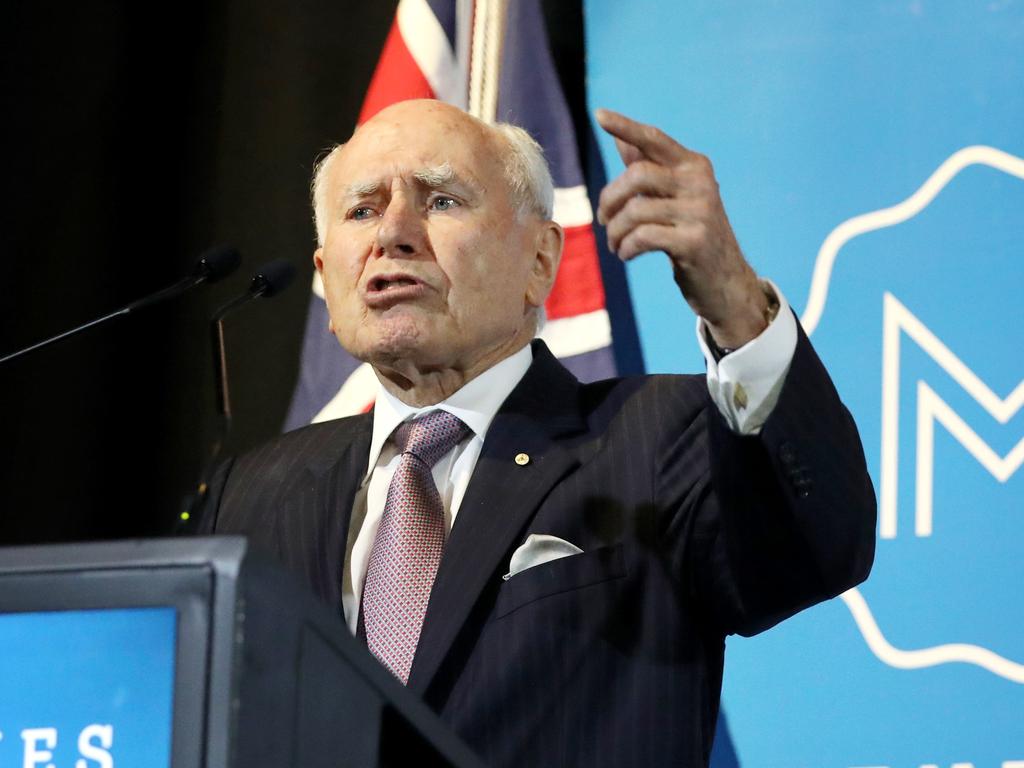Catholic Church leaders say faith laws ‘going backwards’
When hiring or managing staff, religious schools would be able to preference people who share their religious belief under a raft of proposed changes by the Catholic Church.

Two of Australia’s most senior Catholic leaders have put forward a detailed proposal to the Albanese government to address significant concerns about its draft religious discrimination laws, warning that as the legislation stands faith groups “would go a long way backwards”.
The three-pronged proposal, obtained by The Australian, was sent to the government and opposition earlier this month before major party negotiations on the draft laws broke down.
The Coalition is demanding Labor address the extensive list of problems outlined by the Australian Catholic Bishops Conference before it considers its final position.
Signed by Archbishop of Melbourne Peter A Comensoli, Archbishop of Sydney Anthony Fisher and National Catholic Education Commission executive director Jacinta Collins, the proposal allows for the removal of section 38 of the Sex Discrimination Act but says it should be replaced by more precise protections for religious schools and corporations.
The Australian understands the Anglican Church has put forward a similar plan.
“If the (government’s) amendments to the SDA and the proposed Religious Discrimination Bill were enacted as currently drafted, there would be a very real and substantial reduction in existing legal and operational freedoms for religious education institutions,” the archbishops and Ms Collins state.
“In essence, we would go a long way backwards. The current proposals would not provide sufficient legal and operational freedoms for religious educational institutions to maintain their religious ethos and fidelity to religious beliefs and practice.”
The Catholic leaders set out a series of amendments to the SDA to ensure religious schools can “appropriately manage” student conduct where it’s necessary “to preserve the institutions’ religious ethos”.
Pregnant or breastfeeding students could not be discriminated against.
Sources familiar with the proposal said it was designed to ensure schools would not be discriminating against a student because they are gay, but are instead permitted to respond to conduct that would undermine their ethos.
When hiring or managing employees, religious schools would be able to preference people who share their religious belief and don’t do anything to undermine the religion’s teachings.
The proposed changes to the SDA are largely identical to the Morrison government’s 2022 religious discrimination bill exception for religious institutions.
The key consideration is whether a staff member “adheres to” or conducts themselves “consistently” with “the genuinely held religious beliefs and practices” of the school.
In determining whether a religious school had acted in good faith in regards to a student or staff member, a court would take account of whether the institution had made written policies outlining its position on particular beliefs and activities available to families, employees or prospective employees.
“The protections offered by the draft RDB fail to deliver on the government’s election commitment to maintain ‘the right of religious schools to preference people of their faith in the selection of staff’,” the archbishops and Ms Collins state in their proposal.
The Catholic leaders also suggest adopting another clause from the Morrison government’s bill that would make it unlawful to discriminate against a person due to their association with someone who has a religious belief.
The protection would extend to religious organisations – such as a church, school, Christian lobby group, childcare or aged care centre – associated with people who hold religious beliefs.
The Australian Human Rights Commission in 2021 lashed the “highly unusual step” of enabling corporations to make claims of religious discrimination.
The Catholic Church lastly recommends that state and territory anti-discrimination laws shouldn’t trump commonwealth law, suggesting conduct that doesn’t constitute discrimination under national legislation should not breach state laws.
“Difficulties for religious educational institutions due to increasingly restrictive state and territory anti-discrimination laws are exacerbated by the proposed clause 13(2) of the Religious Discrimination Bill,” the archbishops and Ms Collins state.
“Far from simply not overriding state and territory law, this explicitly places state and territory law above commonwealth law. Rights purportedly given to religious schools under the RDB and proposed amendments to the SDA will not be maintained in practice if state or territory laws provide to the contrary.”
Opposition legal affairs spokeswoman Michaelia Cash urged the government to act on feedback from faith groups, amid a stalemate between Labor and the Coalition on religious discrimination reforms. “Faith communities have given the government very clear feedback about how the current draft legislation is inadequate. As I have made clear to (Attorney-General) Mr (Mark) Dreyfus, both he and the government should take heed of that feedback and produce a revised draft of his legislation. He has had this feedback for many weeks now,” Senator Cash said.
“I have also told Mr Dreyfus that he should release a revised draft of the legislation publicly so it can be openly debated.”
Mr Dreyfus’s spokesman said no Australian should be discriminated against because of who they are or what they believe.








To join the conversation, please log in. Don't have an account? Register
Join the conversation, you are commenting as Logout